
👨🏫 Who Was James Hillman? (1926-2011)
I admit that I have a love hate relationship with Hillman’s work. I think that he was absolutely brilliant but also sometimes wildly off the mark. I use his work at my practice, Taproot Therapy Collective in Hoover Alabama. I have talked to his son, Laurence Hillman and his analysand and scholar David Tacey on our podcast. I have also written about his work with Sonu Shamdasani in the Lament for the Dead. Hillman remains a fascinating character who broke from Jung in interesting places.
James Hillman (1926–2011) was a pioneering psychologist, scholar, and cultural critic whose work profoundly shaped the fields of depth psychology, archetypal studies, and ecopsychology. As the founder of Archetypal Psychology, Hillman sought to revive and re-imagine the core insights of C.G. Jung, liberating them from clinical constraints to reveal their transformative implications for the broader culture. He outlined a radical re-visioning of psychology as a fundamentally imaginative and poetic enterprise—an engaged aesthetics of soul-making that permeates all aspects of life and society.
🌰 The Acorn Theory: Destiny and the Daimon
Hillman’s Acorn Theory is one of his most influential and accessible concepts, providing an alternative to psychological models that emphasize parental influence or social conditioning.
What is the Acorn Theory?
The theory posits that each person is born with a unique destiny or potential—a “code” for character—just as an acorn holds the pattern for a specific oak tree.
- The Daimon: This inner code is referred to as the Daimon (from the Greek daimōn). Unlike the Christian “demon,” Hillman’s Daimon is a guiding spirit or genius that holds the individual’s full potential and calling.
- Life as Unfolding: Hillman suggests that much of life is an attempt to align with this innate blueprint. The task is not to create a self, but to discover and embody the unique character that was present from the beginning.
- The Problem of Suppressing the Daimon: Psychological problems often arise when the individual, through educational, familial, or cultural pressures, is forced to pursue a life that betrays the daimon’s calling. This misalignment manifests as depression, anxiety, or a chronic sense of meaninglessness.
Hillman’s View on Character
For Hillman, character is destiny. It is the embodied expression of the soul’s archetypal pattern. When you attend to your character—your innate quirks, passions, and unique style—you are listening to the voice of the daimon and moving toward your destiny.
🌎 Ecopsychology and the Ensouled World
Hillman’s approach to the environmental crisis is one of the most radical applications of Archetypal Psychology, providing a profound foundation for ecopsychology.
The Crisis of the Imagination
Hillman argued that the environmental crisis is fundamentally a psychological and imaginative crisis, not merely a political or scientific one.
- Alienation from Anima Mundi: The modern scientific and industrial world operates under the illusion that the earth is a dead, mechanical object (terra nullius—nobody’s land) ready for exploitation. This reflects our deep-seated psychological alienation from the Anima Mundi (World Soul).
- Disenchantment: When we lose the ability to perceive the world as alive, beautiful, and meaningful (ensouled), we lose the capacity for respect and care, leading directly to environmental destruction.
Hillman’s Vision vs. Contemporary Ecopsychology
Hillman’s perspective differs from many contemporary environmental psychologies that focus on behavior change or nature therapy.
| Aspect | Hillman’s Archetypal Ecopsychology | Contemporary Ecopsychology/Nature Therapy |
| Primary Goal | Soul-making in the world; restoring the metaphorical/mythic connection to Earth. | Wellness and sustainability; reducing anxiety through nature exposure. |
| Focus | Imagination and the Anima Mundi; shifting the inner image of nature. | Behavior and direct experience; improving mood and cognition. |
| Crisis Root | Loss of the Poetic Basis of Mind (Disenchantment). | Lack of exposure to nature (Nature Deficit Disorder). |
Hillman called for an ecological activism rooted in the imaginative life, urging us to restore our ability to perceive the world poetically so that its inherent value (its soul) demands protection.
Resources on James Hillman
| Resource Type | Description | Verified Link |
| Official Website | James Hillman’s Legacy (The official online resource) | https://www.jameshillman.com/ |
| Book | The Soul’s Code: In Search of Character and Calling | Corrected: https://www.amazon.com/Souls-Code-Search-Character-Calling/dp/0446673752/ |
| YouTube Lecture | James Hillman on Myth and Psyche | Corrected: https://www.youtube.com/watch?v=RSw9djJ177I |
| Biography | James Hillman’s Life | Verified: https://www.jameshillman.com/james-hillman-biography/ |
| Institute | Pacifica Graduate Institute | Verified: https://www.pacifica.edu/ |
| Quotes | Collection of James Hillman Quotes | Verified: https://www.goodreads.com/author/quotes/43472.James_Hillman |
| YouTube Embed | Hillman on Myth and Psyche | https://www.youtube.com/watch?v=RSw9djJ177I |
| Related Podcast | Hillman and Archetypes (Taproot Collective) | Verified: https://gettherapybirmingham.podbean.com/ |
🌿 Hillman’s Key Ideas: The Soul in the World
Hillman’s work challenges the modern focus on the ego, calling instead for a shift in perspective toward the soul (psyche) as the primary subject of psychology.
1. Archetypal Psychology and the Poetic Basis of Mind
The cornerstone of Hillman’s thought is his concept of Archetypal Psychology—a polytheistic, image-based approach to the psyche that diverges sharply from the literalizing tendencies of ego psychology.
- The Psyche is a Field: For Hillman, the psyche isn’t a private, interior entity, but a living field of archetypal presences that animate all existence.
- Archetypes as Root Metaphors: Archetypes are not innate patterns but the deepest, most universal patterns of psychic functioning—the root metaphors that shape our experience of reality.
- The Poetic Mind: The core task of psychology is to cultivate a poetic basis of mind—an imaginative engagement with the archetypal images, stories, and metaphors that pattern our world.
2. Re-Visioning Psychology and the Return of Soul
Hillman called for a radical re-visioning of psychology as a discipline rooted in the humanities, rather than the natural sciences.
- Critique of Reductionism: He argued that modern psychology’s emphasis on quantification, objectivity, and literalism strips the world of meaning and deprives the soul of its essential nourishment.
- Soul as Perspective: Soul is not an entity, but a perspective—a way of seeing the world in terms of its imaginative possibilities, metaphorical resonances, and mythic dimensions.
- Soul-Making: Therapy is not about conflict-resolution or self-actualization, but a work of “soul-making”—the creative engagement with images that deepens our experience and ensouls the world.
3. Anima Mundi and the Ensouled World (Ecopsychology)
A central theme of Hillman’s work is the idea of the anima mundi, or world-soul—the notion that the cosmos is a living, ensouled presence.
- The Ecological Crisis is Psychological: Hillman viewed the environmental crisis as fundamentally a crisis of the imagination, rooted in our psychological separation from the natural world.
- Critique of the Modern Worldview: He argued that the modern perspective sees nature as a dead, mechanical object for exploitation, leading to disenchantment and the loss of meaning.
- Ecopsychological Perspective: This view demands a shift from an exploitative attitude toward a more poetic, participatory engagement with nature, seeing the world as a mirror of the soul.
4. Pathologizing and the Imagination
Hillman directly challenged the medicalization and pathologizing of the imagination in contemporary psychology.
- Symptoms as Imaginal Realities: Psychological suffering does not arise merely from personal conflicts, but from the literalization and concretization of archetypal metaphors.
- Pathology as Soul’s Speech: Symptoms and disorders are not simply problems to be solved, but imaginal realities to be engaged and explored—the ways in which the soul speaks to us.
- Therapy as Poetics: The therapist’s task is to engage the poetic potentials of the client’s struggle, not to diagnose or normalize, thereby helping to deepen and ensoul the experience.
5. The Acorn Theory and the Poetics of Character
Hillman’s famous “acorn theory” profoundly influenced modern concepts of destiny and calling.
- The Daimon: Each person is born with a unique daimon (guiding spirit or genius), often symbolized by an acorn, which shapes their character and guides their destiny.
- Character as Destiny: Character is the soul’s way of expressing itself in the world—a unique configuration of archetypal qualities that seeks realization.
- The Task of Life: The goal of individuation is not to create oneself, but to discover and embody the acorn—to align oneself with the daimonic calling of the soul, even in its most difficult expressions.
📚 Publications and Influence
Read More Depth Psychology Articles
These links connect you to verified resources on Hillman’s colleagues and the core concepts of Archetypal and Jungian Psychology:
- Carl Jung & Jungian Concepts: [Verified Link: https://gettherapybirmingham.com/carl-jung/]
- Robert Moore: [Verified Link: https://gettherapybirmingham.com/robert-moore/]
- Marie-Louise von Franz: [Verified Link: https://gettherapybirmingham.com/marie-louise-von-franz/]
- Erich Neumann: [Verified Link: https://gettherapybirmingham.com/erich-neumann/]
- The Poetic Basis of Mind: [Verified Link: https://gettherapybirmingham.com/archetypal-psychology-and-the-poetic-basis-of-mind/]
- Thomas Moore: [Verified Link: https://gettherapybirmingham.com/thomas-moore-and-the-care-of-the-soul/]
- James Hollis: [Verified Link: https://gettherapybirmingham.com/james-hollis-the-psychology-of-midlife/]


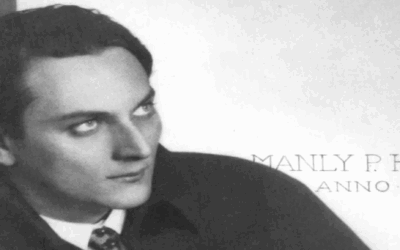
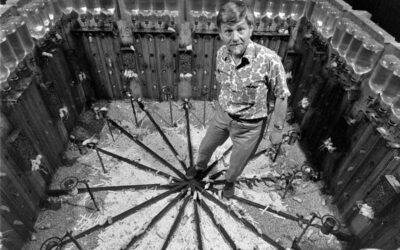









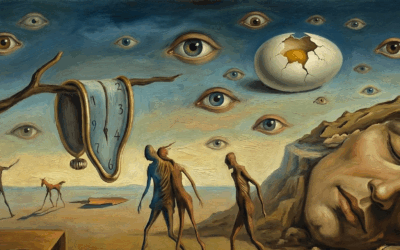





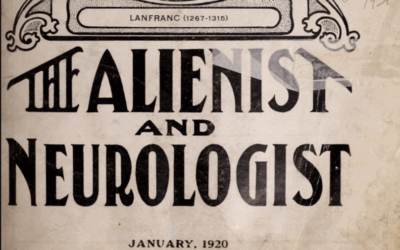

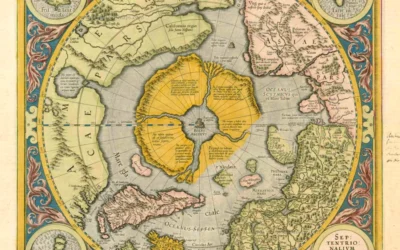

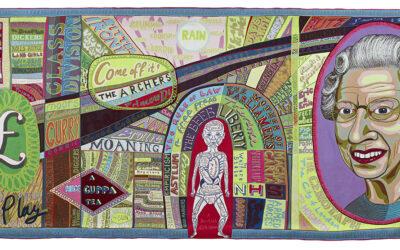


0 Comments